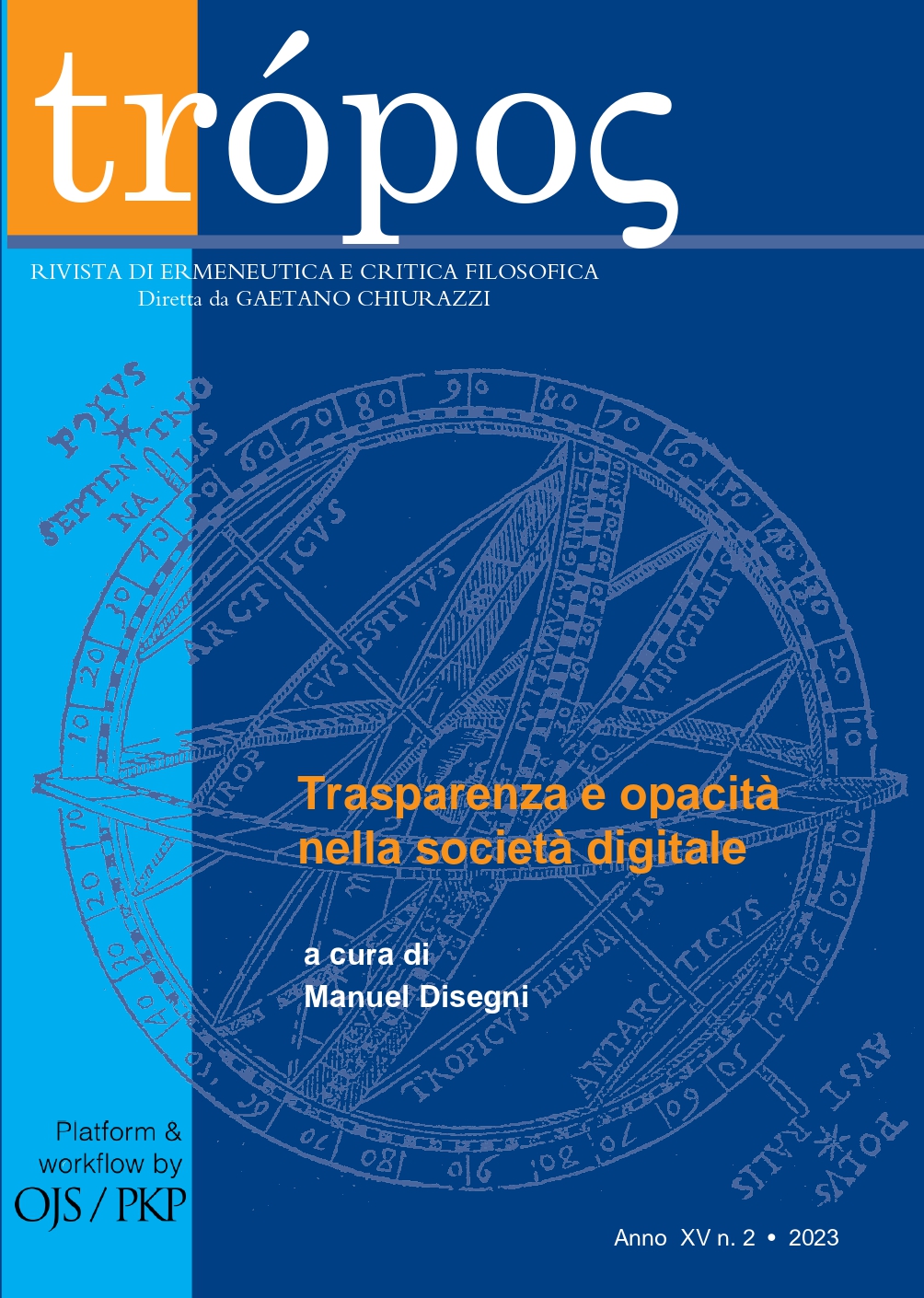The Opacity of Critical Thinking’s Software.
On the Problem of a Critique Through Technology
DOI:
https://doi.org/10.13135/2036-542X/10440Parole chiave:
Transparency, Software, Writing, Coding, Media PhilosophyAbstract
The paper addresses the critique of software’s opacity by examining the opacity of the “software” used by those very same critics: writing. First, I raise the general problem of bringing software back into visibility by citing cases in which a certain degree of opacity in technology seems even to be required as a precondition for its use (§ 1.1), and by highlighting the specificity of the algorithmic black box, which seems to withdraw radically from its own programmer (§ 1.2). Then, I outline the premises for a renewed critical ethos: I take the possible solutions to the algorithmic black box as an illustration of the difference between a critique that outs technology (a critique of technology) and a critique that comes out on its own (a critique by technology), ultimately defending a third way, namely, a critique through technology (§ 2.1); I discuss what have traditionally been the most common forms of critique, arguing that the intellectual, academic one is based exclusively on the technology of writing and thus questioning technology’s implicit uniqueness in light of the ubiquity of code (§ 2.2). Finally, I examine the media theorist F.A. Kittler as a key-example of this type of renewed critical thinking: I expose his peculiar “mediological argument”, according to which critics should realize the traditional technological conditions of their own activity and accept current changes brought about by computer technology (§ 3.1); I present the code written by Kittler as an example of a critique through software, describing him as a true philosopher-programmer (§ 3.2). To conclude, I point towards a mediologically more inclusive future for critical thinking.



